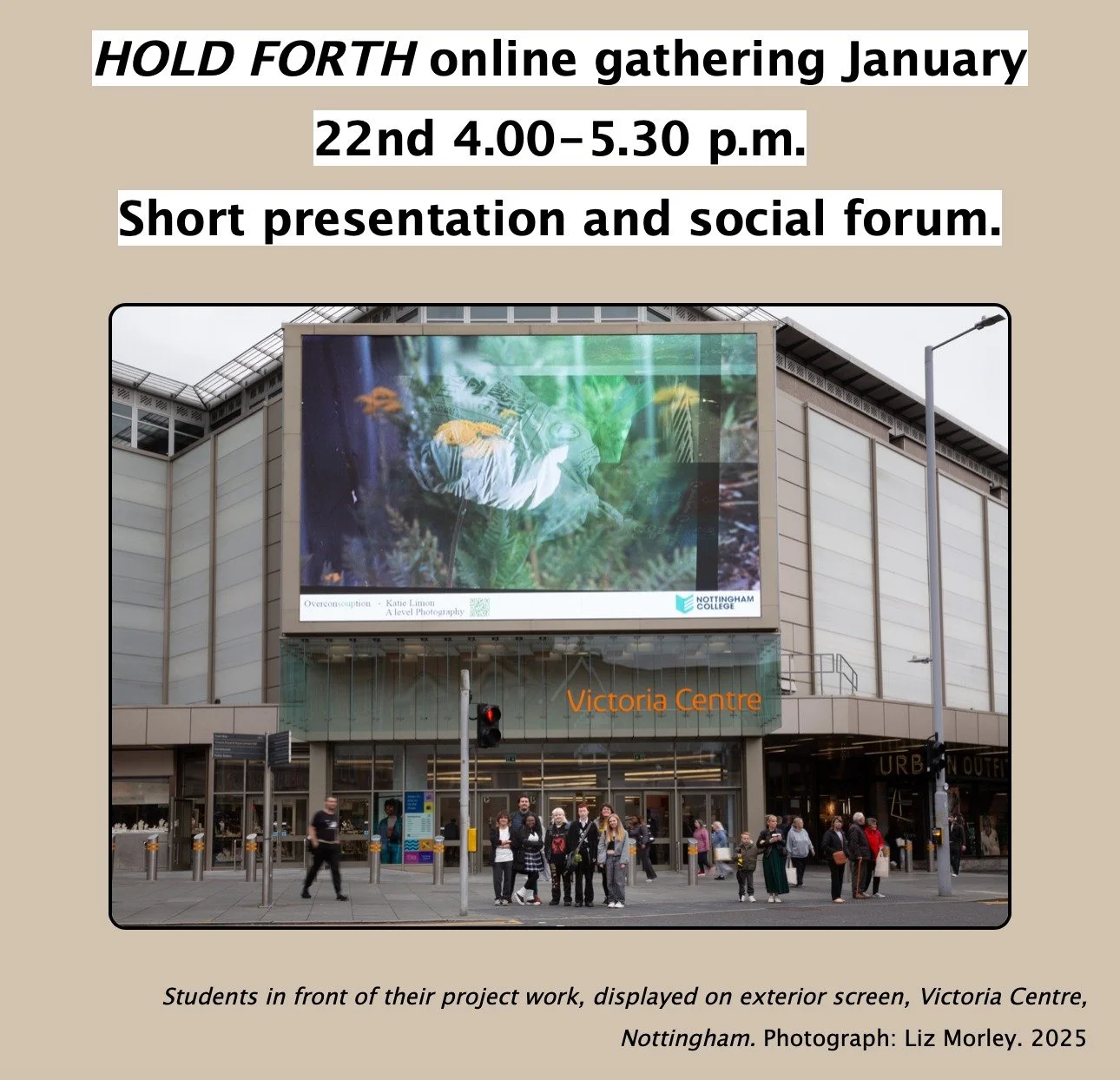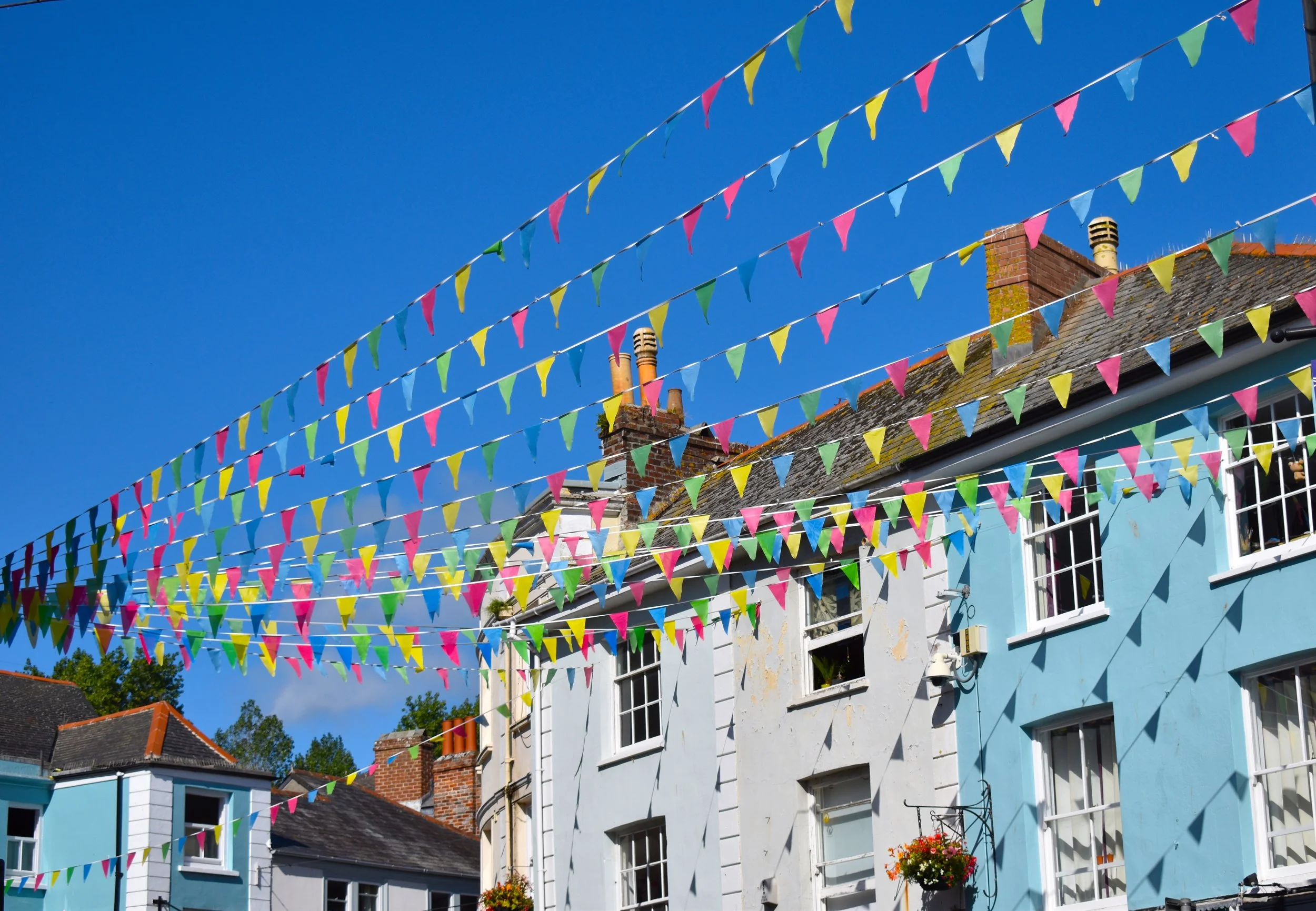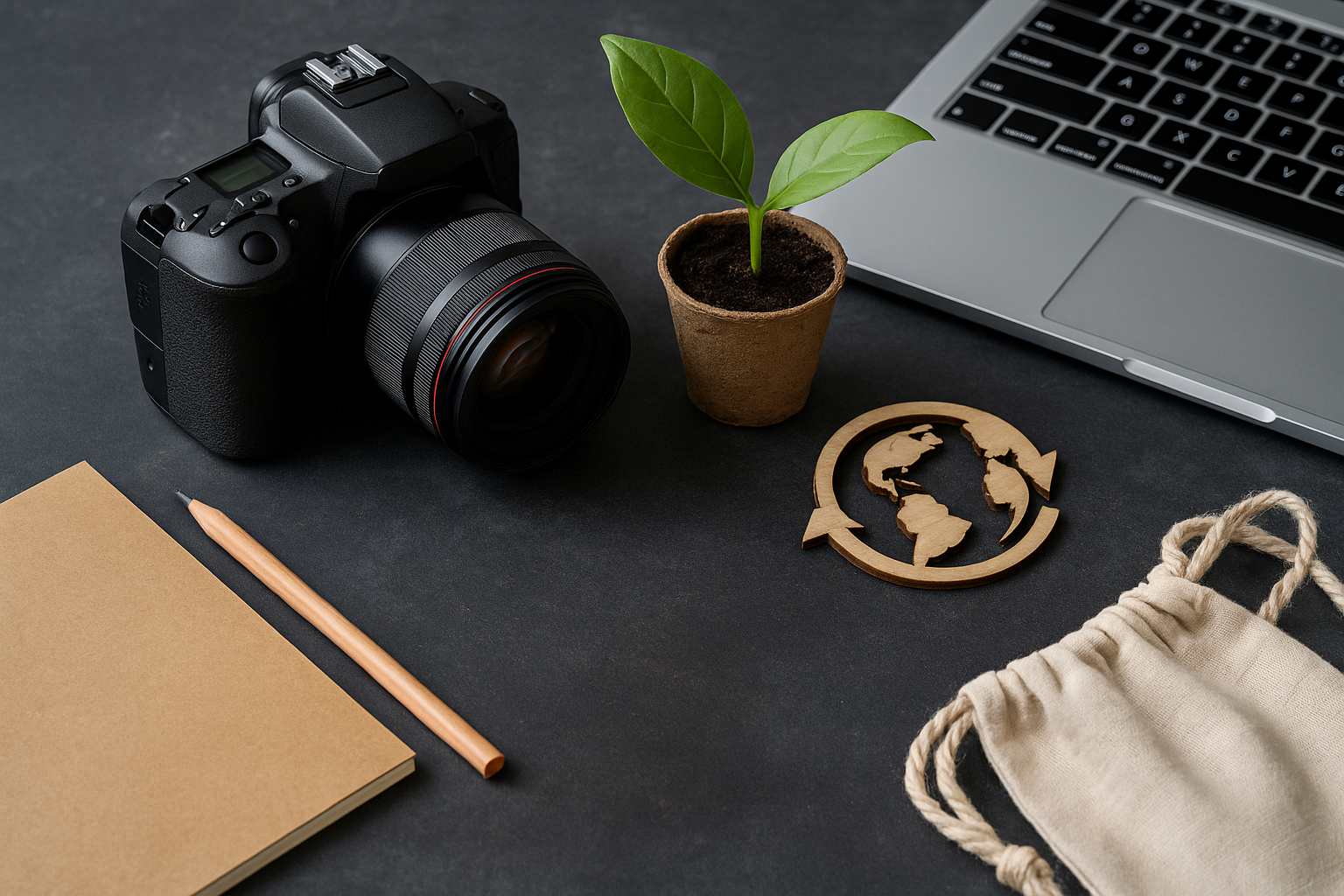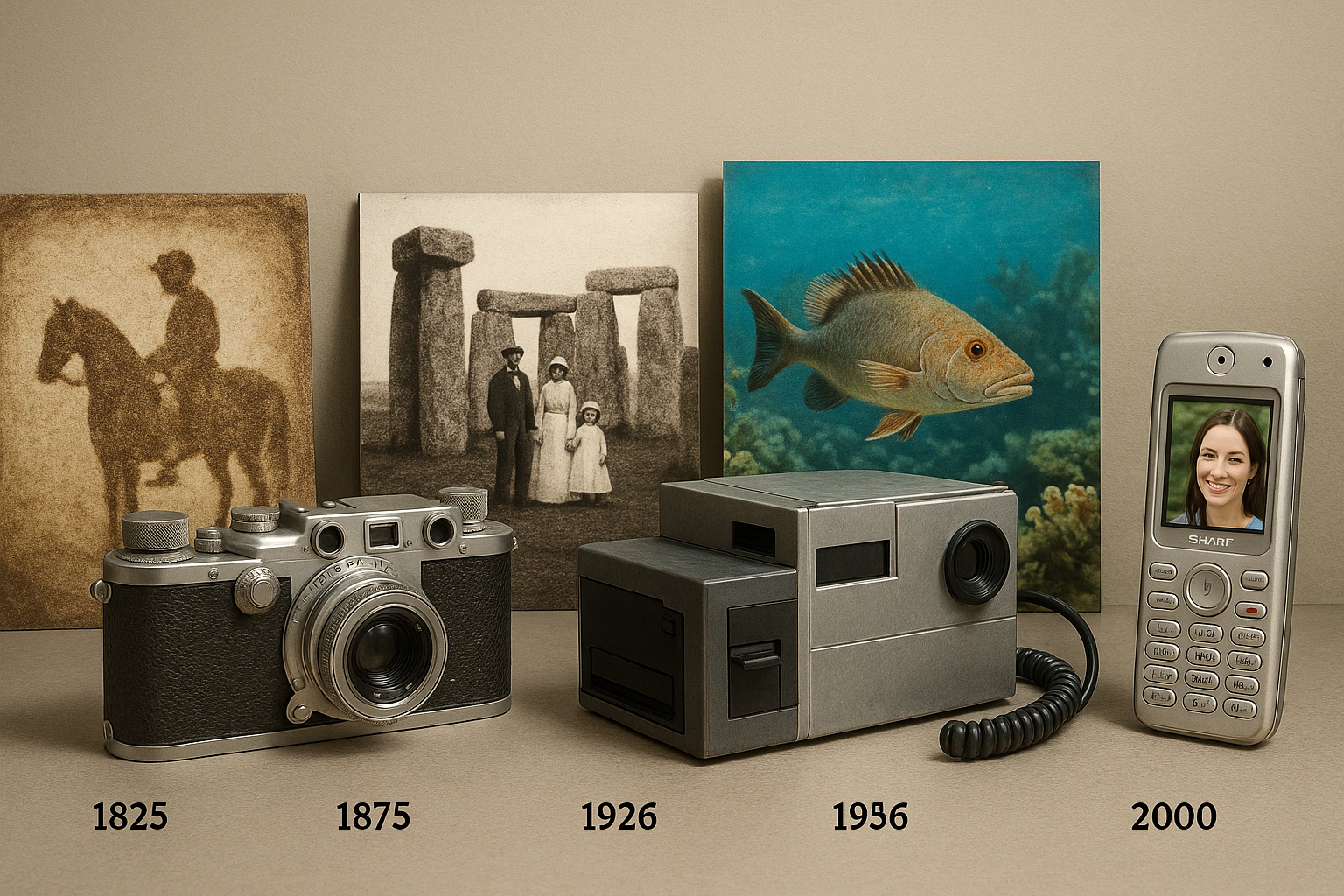
APHE Hold Forth - January 22nd 2026
Matt Bunn, BA (Hons) Photography course leader and sustainability lead at Nottingham College, will discuss a recent project that empowered their students to create strong visual work addressing challenging topics in an uncertain world.

Photographic Anniversaries - 2026 edition
I often begin a class, whatever the subject, with an introduction that looks at the history of the discipline in relation to the significant anniversaries for that year. So, I shall be starting this year's photography classes with significant events from 1826, 1876, 1926, 1976, and 2001.


APHE Hold Forth - Oct 2025 (with Andrew Bracey discussing the QAA Art & Design Benchmarks)
For the first of our monthly member 'drop-ins' we were joined by Andrew Bracey - an artist and curator based in Waddington, Lincolnshire, who teaches on the MA and BA in Fine Art at Lincoln University and is a NAFAE Steering Group member.
For the past 10 months, Andrew has been involved in the consultation process for the new Quality Assurance Agency for Higher Education (QAA) benchmark statements for art & design.

Guest Swaps
This page connects academics offering guest teaching with peers at other institutions. Each listing shares what’s on offer and a contact email. The idea is simple: reciprocal exchange, not payment. Browse the table, reach out directly, and consider offering a session of your own through this list.

APHE History
Copies of Journals and Newsletters issued by the association at various times in the past. If you have more examples lurking in your loft, please share them with us. Thank you.


Being prepared psychologically…
The psychological demands placed on lecturers and teachers have intensified, with feelings of overwhelm, anxiety, and even mild panic now recognised as more than just the “natural stress” once brushed aside. From a psychotherapy perspective, these reactions are not signs of weakness but indicators of a system under sustained pressure, often compounded by blurred boundaries, rising expectations, and reduced recovery time.

Sustainability in Photography 2025/6
As photography educators prepare for the 2025–26 academic year, sustainability is becoming a core teaching and operational priority - driven by climate awareness, student expectations, and sector-wide commitments to reduce emissions. This applies equally to traditional photographic practice and to the growing use of AI-powered image editing.
If you are expected to make a sustainability statement for your courses, I hope that this might help. Feedback ALWAYS appreciated.

Reimagining the language of photography
Photography’s vocabulary is steeped in the imagery of military conflict and the hunt. This is not accidental. When the medium emerged in the nineteenth century, the people who adopted it often moved in the same social worlds as soldiers, explorers, and sportsmen. Many were men of means who hunted game and collected trophies, and they brought that language with them into their new pastime. Cameras themselves were often large, tripod-mounted devices that to the untrained eye resembled surveying or gunnery equipment. In colonial and military contexts, this resemblance was more than superficial: cameras were used for reconnaissance, mapping, and documenting occupied territories. From its early decades, photography was described in terms of aiming, targeting, loading, and shooting – metaphors that framed the act as one of pursuit, precision, and control.

The Changing Role of the Photography Course Leader - What Do We Do Next?
If we, as APHE, exist to defend and champion photographic education, then silence is not an option. We need to decide how we show up for our members when they are being pulled apart by competing pressures. Do we organise? Do we lobby? Do we create spaces that refuse the metrics and reclaim the conversation?

The Proposed Ban on Smartphones (DRAFT)
Photography education relies on smartphones not just as cameras, but as editing suites, visual journals, communication tools, and cultural gateways. In some institutions, especially in further education or community settings, they may be the only photographic device students can access. Their removal, if applied without context or exception, threatens to narrow the curriculum, marginalise disadvantaged students, and reduce photography to a technical exercise devoid of cultural, ethical, and contemporary relevance.

Photographic Anniversaries - 2025/6
I often begin a class, whatever the subject, with an introduction that looks at the history of the discipline in relation to the significant anniversaries for that year. So, I shall be starting this year's photography classes with significant events from 1825/6, 1875/6, 1925/6, 1975/6, and 2000/1.
